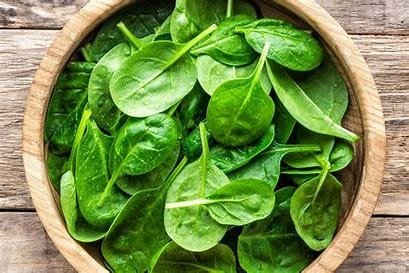While adding a splash of color to our plate, green vegetables are actually high-power nutrient providers. Full of vitamins and minerals, fiber, and antioxidants, green vegetables shower health benefits on people that can serve to catalyze a general boost in healthy living. As such, this article will look into the key factors that make green vegetables a vital component of health and why they should be included in your daily diet.
1. Nutritional Quality: High in vitamins and minerals
Green leafy vegetables are nutrient dense. Most notable in this regard is that they are great sources of:

Vitamins: Green vegetables, such as spinach, kale, and broccoli, are high in vitamins A, C, K, and some B vitamins. Vitamin A is crucial to vision health; vitamin C boosts the immune and skin health; vitamin K is necessary for blood clotting; and B vitamins facilitate energy metabolism.
Minerals: These vegetables are rich in potassium, magnesium, and calcium. Potassium helps in maintaining blood pressure; magnesium is associated with muscular functions and a healthy heart, while calcium helps in giving a good, healthy structure to bones and teeth.
Iron and Folate: These have a high amount of iron in dark leafy greens, which is the critical agent in oxygen transportation through blood. Folate is crucial for DNA synthesis and highly crucial for pregnant women.
2. High in fiber helps in digestive health
One of the widely recognized benefits of green leafy vegetables is their high fiber content Diets that are high in fiber are beneficial for digestive health. They help in maintaining regular bowel movements and preventing constipation from occurring. Their contribution towards healthy gut flora digestion and overall well-being is helpful in performing an efficient digestion activity.
Weight Control: The dietary fiber creates a sense of being fuller for a longer period and, therefore, prevents overeating, ensuring weight loss. It also controls blood sugar spikes and crashes because it slows up the digestion process.
Heart Healthy: Soluble fiber in green vegetables binds the cholesterol molecules and prevents them from getting absorbed into the bloodstream, which may help reduce the cholesterol levels.
3. Anti-oxidative Properties: Defense Against Free Radicals
Green vegetables are also rich in antioxidants. These are chemicals that safeguard your cells from damage through the formation of free radicals. Free radicals are unstable molecules that induce oxidative stress and lead to chronic diseases. Generally, they result in diseases such as cancer, diabetes, and heart disease. The antioxidants that abound in green vegetables include:
Vitamin C: This antioxidant vitamin comes with its fame largely because of boosting the immune system.
However, it is also an important antioxidant capable of fixing tissues and protecting against cellular damage.
Beta-Carotene and Lutein: These are the antioxidants that you get in green vegetables like spinach and kale, which are important for your eyes. It delays age-related degeneration of the eyes and cataracts.
Flavonoids and Polyphenols: Green vegetables contain all sorts of flavonoids and polyphenols, which have anti-inflammatory and Anti cancerous properties. These are helpful in neutralizing free radicals harmful to health and may prevent chronic diseases to some extent.
4. Detoxification: Supporting Liver Health
Detoxification: Cruciferous family green vegetables such as broccoli, Brussels sprouts, and kale are detoxifiers. These contain the glucosinolates that activate some liver enzymes involved in detoxification of harmful substances. Regular consumption of cruciferous vegetables in your diet will boost your liver function, as the liver remains the main detoxification organ of the body. The glucosinolates in cruciferous vegetables help in activating enzymes that neutralize toxins for removal from the body.
Removes Toxins: The fiber in green vegetables helps remove waste and toxins from the body through healthy bowel movement.
5. Bone Health:

Rich in Calcium and Vitamin K Trong bones depend on an adequate intake of calcium and vitamin K, substances found in large amounts in most green vegetables. Although many people get their calcium through dairy, green vegetables such as broccoli, collard greens, and Bok choy are rich in calcium without the side of fat or lactose from dairy. More generally,
Vitamin K: Vitamin K is necessary for bone building, as it regulates calcium in the bones to prevent osteoporosis. It is also a blood clotting aid, and the nutrient helps maintain overall health of the vessels.
Calcium Absorption: Green vegetables contain plant-based calcium that easily gets absorbed by the body, enabling human beings to maintain their bone density.
6. Heart Health: Reducing Cholesterol and Blood Pressure
Green vegetables contain fiber, potassium, and antioxidants, which can prevent heart diseases. However, many forget about their consumption while dieting, as they help reduce the cholesterol level, decrease blood pressure, and reduce the risk of heart diseases. These are some of the benefits that come with green vegetables:
cholesterol: the soluble fiber in green vegetables gets absorbed by the cholesterol and prevents its absorption into the bloodstream, hence reducing LDL (“bad”) cholesterol.
Regulation of Blood Pressure: spinach, Swiss chard, and kale are rich in potassium. Potassium intake helps in regulating the sodium that occur within the body, and this is vital in controlling the blood pressure and preventing hypertensive conditions.
7. Weight Management: Low in calories but high in nutrients
Green vegetables are low in calories but contain a lot of nutrients. These vegetables are, hence, perfectly perfect for those who need to lose weight. As they have high water and fiber content, they will help you to feel full and prevent hunger with no addition of weight. Among other things,
Low in calories, nutrient-dense: since it gives considerable amounts of vitamins and minerals while containing fewer calories, the vegetables are excellent for calorie-watchers.
Metabolism Booster: Most green vegetables contain B vitamins that boost metabolic activities of the body, thus helping in its improved conversion of food materials into energy.
8. Anti-inflammatory Property: Inflammation Reduction
Chronic inflammation has been seen to contribute to many diseases now known to include the disease conditions for heart disease, arthritis, and even cancer. Green vegetables are known to be rich in anti-inflammatory substances that are said to combat the irritation caused by chronic inflammation around the body. Some of the known anti-inflammatory nutrients that feature in the vegetables include:
Omega-3 Fatty Acids: Some people associate omega-3 fatty acids with fish, but actually the most minor sources of these lipids are green vegetables, such as spinach and Brussels sprouts, where they can contribute to reducing inflammation.
Flavonoids: Many plant metabolites in vegetables like broccoli and kale have been proven to reduce inflammation and associated chronic diseases.
Conclusion

The addition of green vegetables to your diet is the simplest way to enhance your health. From promoting the smooth functioning of digestion and detoxification to protection from chronic diseases, all of them offer a huge number of benefits. You can include a good range of green vegetables in your day-to-day diet and reap their full range of health-promoting properties. Whether you want to improve heart health, achieve a healthy weight, or bring down inflammation, green vegetables are just an important part of a balanced and nutritious diet.



